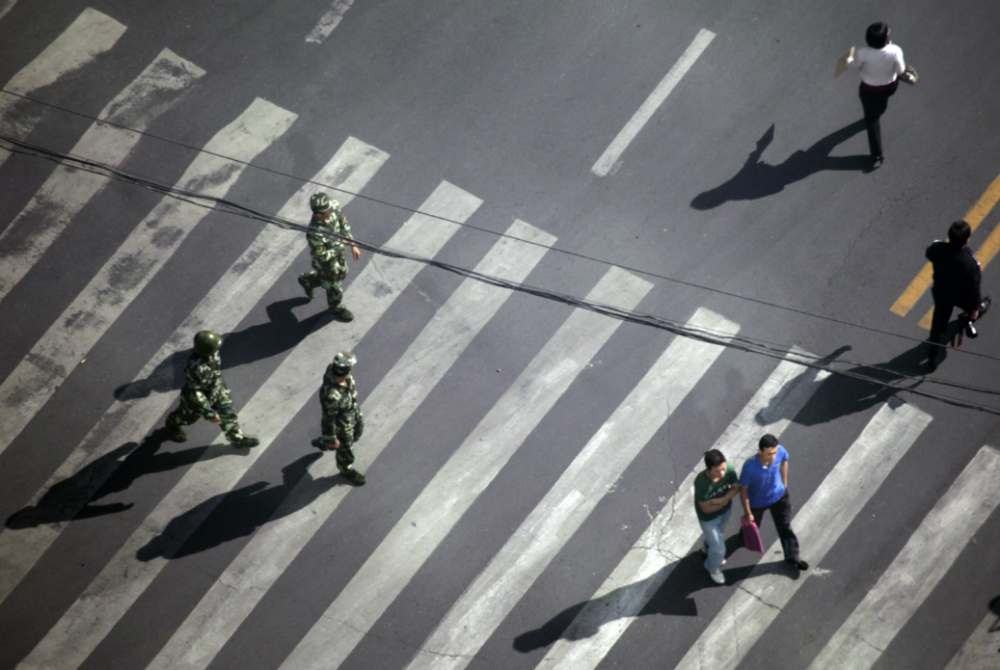Major brands face a growing challenge to root out forced labour in Chinese supply chains, the top US anti-human trafficking official said Friday, as the United States stepped up the blocking of imports of goods made in Xinjiang.
Ambassador-at-Large John Richmond said reports that forced labour by the Chinese government had spread beyond Xinjiang to other provinces complicated the process of due diligence for global firms.

Locals and Chinese security personnel cross a junction in the centre of Urumqi in China’s Xinjiang Autonomous Region on 7th September, 2009. PICTURE: Reuters/Nir Elias/File photo
“It is increasingly difficult for well-intentioned international companies to track exactly which products in their supply chain are made with forced labour,” Richmond told a Zoom call with journalists.
He added that the United States would continue its efforts to connect companies with activists and non-profits to help call attention to abuses.
“US companies do not want to unwittingly support forced labour and neither do US consumers,” Richmond said.
The Xinjiang region in north-west China is home to a large population of Uighur people, a Muslim minority that has faced mass detention in Chinese Government camps.
An Australian thinktank earlier this year found that tens of thousands of Uighurs were moved to work in factories in other parts of China.
Another program in rural Tibet, where workers are being transferred into military-style training centers, was reported by Reuters in September and defended by officials in Chinese-administered Tibet this week.
China’s government has denied mistreatment of the Uighurs and the presence of forced labour in Tibet. A representative for the Chinese Embassy in the United States did not immediately respond to a request for comment.
The US Government’s criticism of China comes at a time of bilateral trade tensions between the two countries.
Separately on Thursday, US Customs and Border Protection said it had detained the import of 32 cartons of women’s leather gloves from Xinjiang on the suspicion they were made with forced labour.
CBP has issued 13 orders to block goods it suspected were made with forced labour in fiscal year 2020, including eight on goods from China.
Some activists have asked for a broader detention order on goods from Xinjiang, but Richmond declined to say whether he was in favour of it.
“We obviously want to consider the merits of that, but what we want to do as the United States is send a clear message that products that are made with forced labour are not going to be allowed to come into the United States,” he said.
A committee of lawmakers in Britain on Friday wrote to several leading brands to ask about their sourcing and whether they were profiting from the forced labour of Uighurs in Xinjiang.





